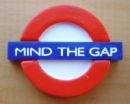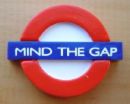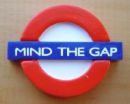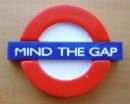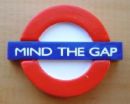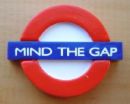 Shocking: Iowa an Agricultural Desert, Cannot Eat Its Own Corn!,
Shocking: Iowa an Agricultural Desert, Cannot Eat Its Own Corn!,
Michael Pollan
I bought both his books, and now regret buying the Botany of Desire–that book is more of a whimsical discussion of the relation between four plants and humans, while this one is a deeper learning experience that is focused on sustainability. There are a number of gems that I noted down.
In something of a play on words and meaning, the author opens by noting that we have a national eating disorder because we lack a culture that places eating in a proper frame of reference where time spent preparing and enjoying food is valued, and then seques into how damaging to the environment, and to ourselves, are monocultures. At many points through the book the author documents how industrialized foods are less nutricious, more harmful to the human body, and more wasteful of the earth's resources, than organic foods.
The book is especially dramatic and deeply documented with reference to the bastardization of corn from something delicious for humans, to something that is not edible by humans but used to create a machine line for manufactured foods that can be transported great distances. The whole story of corn as the foundation for abusing cows, chickens, and other animals is extremely well told here, and shocking. It stunned me, for example, to read about Iowa as an agricultural “desert,” whose farms cannot support families, only inedible corn destined for beef factories.
As the author notes, the mutation of corn pushed the animals off the local farms and into a factory farm system. The author does not emphasize animal cruelty but that comes across clearly. Animals are grown in confined spaces, and drugs combined with forced feeding take an animal from 80 lbs to 1,100 lbs in 14 months, at which point they are killed.
Side notes on how beaks are cut off chickens to keep them from hurting another another in conditions that make gulags look like country clubs, are reguarly put forward, and very troubling.
The manner in which our mutant agriculture leads to obesity can be illustrated by the author's showing that corn fed beef is “marbled” with fat, and cleverly sold as a feature rather than the flaw that it is.
Processed food wastes energy. Later on in the book the author stresses that grass farming is the fastest way to harness the free renewable power of the sun.
On pages 130-131 he constrasts the two competing systems:
He constrasts industrial vs. pastoral; annual vs. perennial; monoculture vs. polyculture; fossil energy vs. solar energy; global market vs. local market; specialized vs. diversified; mechanical vs. biological; imported fertility vs. local fertility; and myriad inputs including fertilizer and chemicals, vs. chicken feed.
I learn that industrialized organic farming is just as fuel and corn consumptive as industrialized chemical farming.
The author affirms the productivity of local farms, while pointing out that it is the transaction and scaling costs that kill the family famr.
He paints an attractive picture of natural farms as not needing machines, chemicals, fertilizers, and so on, because they manage natural complexity is a way that produces balance, nutrition, productivity, and profit. Localized food is natural.
Chefs get a great deal of credit for helping localized farms survive, as they give testimony with their buying, of how much better the localized product are from the one size fits all drugged up factory foods.
I recommend The Ecology of Commerce or Natural Capitalism: Creating the Next Industrial Revolution in addition to this book, and also Pandora's Poison: Chlorine, Health, and a New Environmental Strategy the latter on our chlorine-based industry. I do not recommend the The Botany of Desire: A Plant's-Eye View of the World unless you are interested in the spirit of the plant rather than the stabilization of the planet.
See also Diet for a Small Planet and Hope's Edge: The Next Diet for a Small Planet
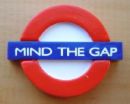 Click Here to Vote on Review at Amazon,
Click Here to Vote on Review at Amazon,
on Cover Above to Buy or Read Other Reviews,
I Respond to Comments Here or There


